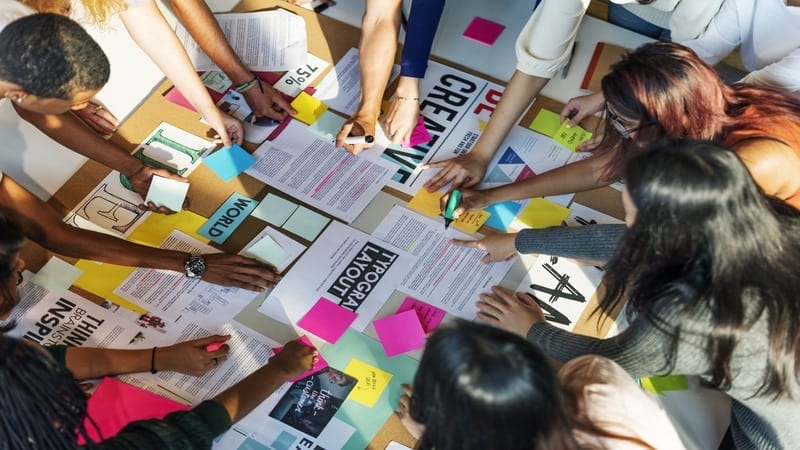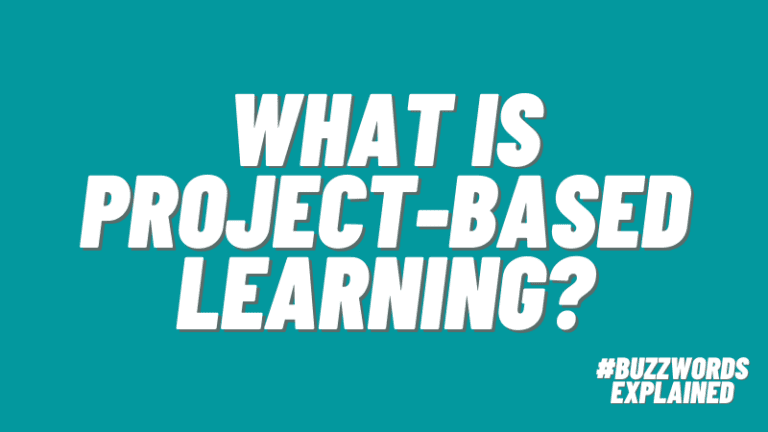Most classrooms have those disengaged students who couldn’t care less about what is happening in school. They’re sometimes the quiet ones who refuse to speak or work, and sometimes they’re the troublemakers who seek to disrupt—as a method for not doing work. Take all of those kids and put them in a single classroom, and you have the model for alternative education. Engaging alternative education students may sound tough, but consider that all it may mean is that they didn’t cope well in a traditional school setting. As an alternative ed teacher, I find teaching methods that engage them because they aren’t traditional. One of my favorite ways to inspire and engage them is with Project-Based Learning.
I recently had my students complete a six-week project to create a proposal about a change they wanted to see at our school. Once my students finished their projects, they presented them to stakeholders at the school and the community for actual consideration for implementation. These are my takeaways from the experience:
1. Project-based learning gives students ownership.
Part of the magic of project-based learning (PBL) is that students get to own the material and the process. Each day when they came in, they set agendas for what is needed to happen, they held each other accountable, and they found ways to solve problems that they encountered. The students directed the learning, and I was just their guide. When students have ownership, their engagement increases.
2. Project-based learning builds confidence.
My students have a lot of insecurities that can manifest in different ways. It can be the student who feels sick on presentation day because of the anxiety of public speaking. Sometimes it’s the kid who sits quietly and doesn’t want to share their ideas for fear of being judged. PBL gives students opportunities to work on and ultimately improve upon their responses. They don’t just present once at the end of a project but instead many times along the way. PBL allows them to practice these important skills before they have to present their projects. By the time my students gave their 45-minute presentations, they were comfortable and confident, and as a result, they absolutely crushed it!
3. Project-based learning allows students to pursue their passions.
Many of my alternative ed students are not interested in traditional curricula requiring reading Hamlet or memorizing science facts. Instead they are fascinated by authentic learning like the ramifications of a decreasing bee population. Some are passionate about creating a safe place for students with high anxiety. PBL offers students the opportunity to invest in areas where they have passion and pursue them in an intellectual and challenging way. I still have to teach specific content, like Shakespeare or biology, but tying it into a project that is relevant to students wins their engagement.
4. Project-based learning teaches my students skills they will use for the rest of their lives.
The modern workplace requires the ability to communicate and collaborate. Valuable workers know how to deal with conflict and can hold their peers accountable. In this rapidly changing world, creativity, time management, and agency are valued more than ever. These are skills that employers are looking for. With PBL, students are having to use and improve their soft skills daily. The work requires it, and it is on them to navigate rough waters and find creative solutions to the issues that may arise. This ultimately helps them become real-world ready.
5. Project-based learning transforms required schoolwork into engaged curiosity.
I will never forget the time when one of my more disengaged students said, smiling ear to ear, “Mr. B, I have poured everything I have into this project.” And I knew she had. She (and the others in the room) understood true curiosity as a means for learning. After they gave their final project presentations, students could not stop talking about how it went and what was next for it. The project deadline had passed, but for them, it was only the beginning.
Join the conversation on school leadership in our Facebook group at Principal Life.
Plus, check out Why Your School Needs a Makerspace.

